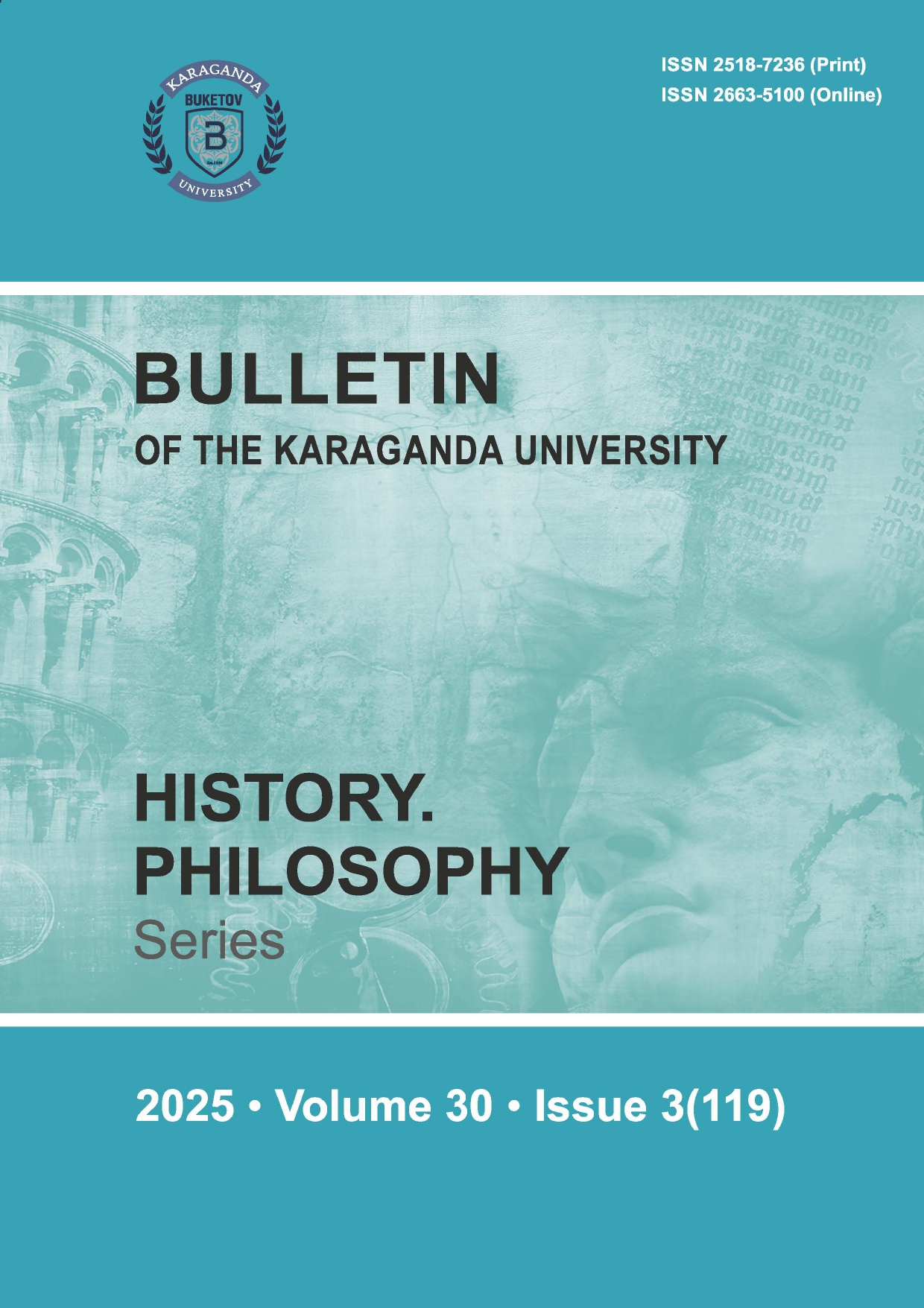The Phenomenon of Volunteerism in al-Farabi’s Philosophy: The Spiritual Path to Happiness and Virtue
DOI:
https://doi.org/10.31489/2025hph3/248-253Keywords:
al-Farabi, ethics, good, evil, happiness, virtue, volunteerism, intelligence, spirituality, spiritual, perfectionAbstract
This article provides a comprehensive analysis of the spiritual essence of volunteerism and its role in achiev-ing happiness within the framework of al-Farabi’s ethical philosophy. Al-Farabi interprets the concept ofsa‘āda (happiness) as the highest good attainable through reason, willpower, and the pursuit of virtue. Volun-teering is viewed as a conscious moral choice and an expression of one’s inner world and ethical responsibil-ity, carried out through actions that benefit society. The study examines the philosophical parallels betweenal-Farabi’s views on human spiritual perfection and the ethical foundations of modern volunteer work. Usingtextual and comparative-philosophical analysis, the article explores how virtuous voluntary acts serve as apathway to happiness. In Farabi’s thought, happiness is not merely a subjective state but an ontological condi-tion attained through the pursuit of truth, absolute good, and ultimate purpose. This perspective allows for ameaningful re-evaluation of volunteerism as a form of spiritual self-realization and civic contribution. Thepaper aims to demonstrate the relevance of al-Farabi’s philosophical legacy in addressing contemporary is-sues of morality, social responsibility, and active citizenship.




